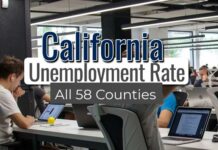Mayor London Breed announces priorities for small business
San Francisco, CA – Mayor London N. Breed announced legislation to make it easier for small businesses to recover, open, and operate in San Francisco.
The Small Business Recovery Act introduced by Mayor Breed has three main priorities: to reduce bureaucracy in the business permitting process, increase flexibility for small businesses, and support arts and culture in San Francisco. This effort is especially important for San Francisco’s recovery from the COVID-19 pandemic, as it will help existing businesses succeed and attract new commercial activities to neighborhoods throughout the city.
“San Francisco has some major work ahead to recover from the devastating impacts of the pandemic.”
Rodney Fong President & CEO of the San Francisco Chamber of Commerce
This legislation is a continuation of Mayor Breed’s commitment to support small businesses during the City’s response to COVID-19, and her previous efforts to streamline permitting to make it easier for small businesses to open and operate in San Francisco, including Proposition H, which voters approved in November 2020 with more than 60% of the vote. The Small Business Recovery Act expands the measures included in Proposition H, including a 30-day turn around for City departments to sign off on an application, to apply to businesses citywide. Most notably, this expansion applies to businesses in Union Square, downtown, and SoMa, which have been particularly hard-hit by the COVID-19 pandemic. The legislation makes several other Planning Code changes to simplify processes for businesses throughout San Francisco, saving businesses time and money.
“It’s critical that we make it as easy as possible for small businesses to open or adapt…”
London Breed, Mayor of San Francisco
“The streamlined process that we created with Proposition H is helping small business owners throughout San Francisco, from adding a second restaurant location and transitioning from a retail establishment to a restaurant, to opening a new storefront. With this legislation, we’re expanding that simplified process to even more neighborhoods and making it even easier to start or operate a business in San Francisco,” said Mayor Breed. “Especially as we look to recover from the devastating impacts of the pandemic, it’s critical that we make it as easy as possible for small businesses to open or adapt, so that they can make it through and we can come out of this pandemic even stronger than before.”
Further Reducing Bureaucracy and Streamlining Permit Process
Proposition H streamlined the permit process for businesses in neighborhood districts, and this legislation expands those streamlining efforts to businesses in other areas of the City, including Union Square, downtown, and SoMa. This legislation would provide permits with quick, 30-day turnaround times, and eliminate lengthy notification requirements.
In addition to expanding the benefits of Proposition H to other areas of the city, the Small Business Recovery Act includes citywide reforms to further cut bureaucracy and make it simpler, faster and less expensive for businesses to open, operate, and adapt. The legislation speeds up the process for businesses coming into a vacant space if the last business to have operated there was the same type, for example a bar going into a long-vacant space that was previously a bar.
The Small Business Recovery Act expands an expedited review process and guarantees a 90-day turnaround in conditional use permits for additional uses including bars, nighttime entertainment and formula retail with fewer than 20 locations worldwide. Without access to this process, business can otherwise lengthy delays in permitting. This change still allows time and process for community input while giving a prospective business a better understanding of their application timeline.
Expanding Flexibility
The COVID-19 pandemic has shown ever more clearly the need for small businesses to be able to adapt to a changing environment and diversify their revenue streams, and the Small Business Recovery Act would make several changes that give businesses more flexibility. For example, the legislation allows restaurants to host accessory catering businesses in their kitchens, which will support restaurants during San Francisco’s recovery from COVID-19, while allowing new entrepreneurs to build food businesses. Additionally, the legislation allows businesses and organizations to use rooftop spaces, and allows Accessory Dwelling Units to be built in the back of commercial spaces. The legislation also makes it easier for businesses to use their space in multiple ways and simplifies the definitions for retail businesses.
Supporting Arts and Culture

The Small Business Recovery Act makes several changes to help existing arts and culture venues, including nightlife and entertainment venues, stay afloat, and to encourage more arts and culture across the city. Specifically, the legislation expands the hours that businesses are able to hold live performances and would no longer require an entertainment permit for solo performances, saving businesses hundreds of dollars and encouraging more partnerships between small businesses and local talent. The legislation removes the limitation on the number of one-time-event entertainment permits that can happen at a location each year. Additionally, the legislation provides a clear pathway for long established nighttime entertainment uses to receive clarity on land use authorization and further simplifies the requirements for a Conditional Use Permit.
Support for the Small Business Recovery Act
“Every corner of our City benefits from the economic and cultural impact of our restaurants,” said Laurie Thomas, Executive Director of the Golden Gate Restaurant Association. “This is why GGRA is thrilled knowing that this ordinance will make it easier for restaurants to open and operate all across San Francisco by guaranteeing a faster application timeline. Because the pandemic has devastated so many of our restaurants, we know we need to provide opportunities for new business models, which this ordinance does by allowing restaurants to host caterers when not open. I want to thank Mayor Breed for her leadership and support.”
“This pandemic has absolutely devastated our small businesses, and we must create a path to recovery for them,” said Sharky Laguana, President of the San Francisco Small Business Commission. “This legislation will ensure that San Francisco is prepared to welcome new businesses city wide by making the process to establish a new small business less cumbersome and costly. Existing businesses will have more options to adapt their business models and to encourage more arts and culture in their spaces. I want to thank Mayor Breed for her steadfast support of our small businesses, and I look forward to continue to work to make it as easier to support our small business community.”
“San Francisco’s venues are not only a cultural cornerstone of this city, but an economic one as well.”
Rob Ready, Co-Owner of PianoFight
“The voters and Mayor Breed knew well that we needed to fix our very broken system that small businesses must go through when passing Proposition H last November,” said Ben Bleiman, President of the San Francisco Entertainment Commission. “We must now build upon the successes of Prop H, and expand the access to a less cumbersome and costly application process city wide, which is exactly what this legislation does. San Francisco’s economy and culture rely heavily on our small businesses and we must do everything we can to support our small businesses especially now.”
“San Francisco has some major work ahead to recover from the devastating impacts of the pandemic,” said Rodney Fong President & CEO of the San Francisco Chamber of Commerce. “This legislation will make the road to recovery easier for our small businesses and our City by making it easier to open and operate a small business whether you’re in SoMa, Union Square, or downtown. Let’s tear down the obstacles that make it difficult for our small business community so they can continue their incredible work of vitalizing our neighborhoods, bringing in visitors, lifting up our local economy, and building San Francisco’s reputation as a cultural hub.”
“San Francisco’s venues are not only a cultural cornerstone of this city, but an economic one as well,” said Rob Ready, Co-Owner of PianoFight. “For every dollar spent on a ticket to an independent venue, an additional $12 is spent in the local economy on travel, lodging, food, child care etc. This piece of legislation provides vital protections for our venues in one of the most competitive commercial real estate markets in North America. We’re grateful for Mayor Breed’s leadership to ensure San Francisco remains a top music and culture destination.”
Union Square
“Union Square must be able to recover alongside the rest of the City,” said Karin Flood, Executive Director of the Union Square Business Improvement District. “Proposition H went a long way to helping our small business community, and this expansion will help attract small businesses to every corner of San Francisco. The last year has devastated us all, and the Small Business Recovery Act will ensure the City is supporting not stymying our small businesses as we work to revitalize our city.”
Mayor Breed’s Support for Small Businesses
In addition to building on Proposition H, the Small Business Recovery Act builds upon Mayor Breed’s Small Business Streamlining legislation from fall 2019. The legislation focused on streamlining the City’s often burdensome and confusing small business permitting process by clarifying ambiguous provisions in City codes, eliminating redundant requirements and removing outdated barriers so that local entrepreneurs can provide residents and visitors with experiences and services that are reflective of each neighborhood’s unique character. The Small Business Streamlining legislation was passed as part of Mayor Breed’s Citywide Storefront Vacancy Strategy that also included nearly $1 million dollar in program investments and implementation of administrative reforms to support small businesses vibrancy and vitality.
Since the beginning of the global COVID-19 pandemic, the City has identified more than $24 million in grants and loans to support small businesses. These programs include the San Francisco Resiliency Fund and the San Francisco Hardship Emergency Loan Program, which serve small businesses, sole proprietors, and independent contractors with little to no access to traditional credit in underserved communities. The programs are a result of public and private partnerships that leverage various resources, including the generous donations to the Give2SF COVID-19 Response and Recovery Fund.
(21+ years strong)
Welcome to the brighter side!
Get in front of local customers! 24/7 (365)





















